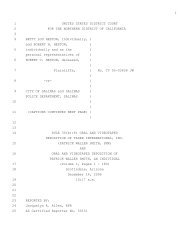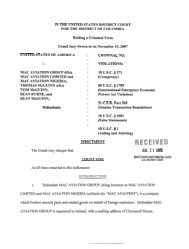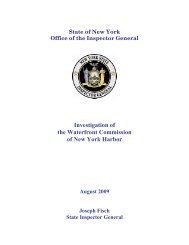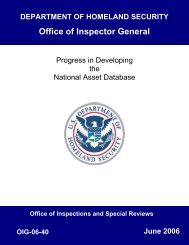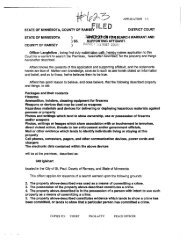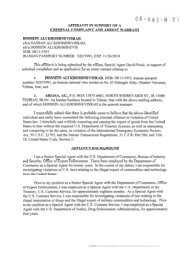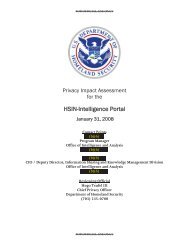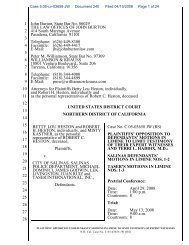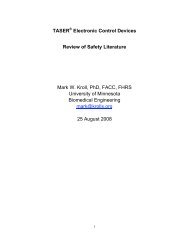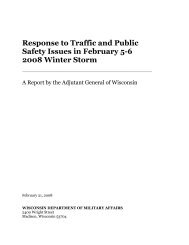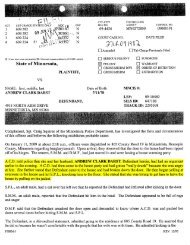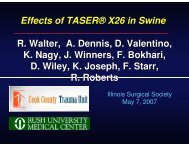04-473 - Garcetti v. Ceballos - Supreme Court of the United States
04-473 - Garcetti v. Ceballos - Supreme Court of the United States
04-473 - Garcetti v. Ceballos - Supreme Court of the United States
Create successful ePaper yourself
Turn your PDF publications into a flip-book with our unique Google optimized e-Paper software.
Cite as: 547 U. S. ____ (2006)7Opinion <strong>of</strong> <strong>the</strong> <strong>Court</strong>indeed has far broader powers than does <strong>the</strong> governmentas sovereign”). Government employers, like private employers,need a significant degree <strong>of</strong> control over <strong>the</strong>iremployees’ words and actions; without it, <strong>the</strong>re would belittle chance for <strong>the</strong> efficient provision <strong>of</strong> public services.Cf. Connick, supra, at 143 (“[G]overnment <strong>of</strong>fices could notfunction if every employment decision became a constitutionalmatter”). Public employees, moreover, <strong>of</strong>ten occupytrusted positions in society. When <strong>the</strong>y speak out, <strong>the</strong>y canexpress views that contravene governmental policies orimpair <strong>the</strong> proper performance <strong>of</strong> governmental functions.At <strong>the</strong> same time, <strong>the</strong> <strong>Court</strong> has recognized that a citizenwho works for <strong>the</strong> government is none<strong>the</strong>less a citizen.The First Amendment limits <strong>the</strong> ability <strong>of</strong> a public employerto leverage <strong>the</strong> employment relationship to restrict,incidentally or intentionally, <strong>the</strong> liberties employees enjoyin <strong>the</strong>ir capacities as private citizens. See Perry v. Sindermann,408 U. S. 593, 597 (1972). So long as employees arespeaking as citizens about matters <strong>of</strong> public concern, <strong>the</strong>ymust face only those speech restrictions that are necessaryfor <strong>the</strong>ir employers to operate efficiently and effectively.See, e.g., Connick, supra, at 147 (“Our responsibility is toensure that citizens are not deprived <strong>of</strong> fundamentalrights by virtue <strong>of</strong> working for <strong>the</strong> government”).The <strong>Court</strong>’s employee-speech jurisprudence protects, <strong>of</strong>course, <strong>the</strong> constitutional rights <strong>of</strong> public employees. Yet<strong>the</strong> First Amendment interests at stake extend beyond <strong>the</strong>individual speaker. The <strong>Court</strong> has acknowledged <strong>the</strong>importance <strong>of</strong> promoting <strong>the</strong> public’s interest in receiving<strong>the</strong> well-informed views <strong>of</strong> government employees engagingin civic discussion. Pickering again provides an instructiveexample. The <strong>Court</strong> characterized its holding asrejecting <strong>the</strong> attempt <strong>of</strong> school administrators to “limi[t]teachers’ opportunities to contribute to public debate.”391 U. S., at 573. It also noted that teachers are “<strong>the</strong>members <strong>of</strong> a community most likely to have informed and



